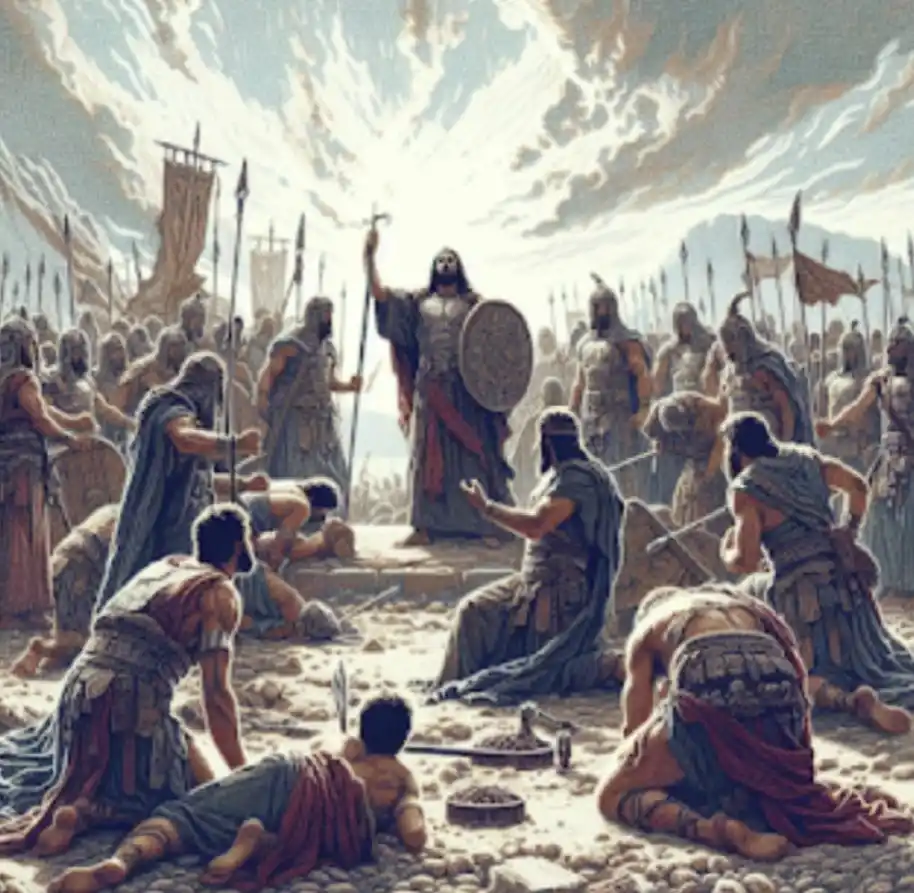Tearing Down Altars with Gideon

SHARE
“So Gideon took ten of his servants and did as the Lord had told him. But because he was afraid of his family and the townspeople, he did it at night rather than in the daytime.” — Judges 6:27
The story of Gideon is not just an ancient account of Israel’s deliverance; it is a timeless call to personal and national revival. Before Gideon could lead Israel to victory, he first had to tear down the false altars that stood in his own backyard. His journey reminds every believer that spiritual triumph begins not on the battlefield but in the hidden places of obedience.

When the Angel of the Lord appeared to Gideon, He found him threshing wheat in secret — a symbol of fear and survival. Yet God called him “a mighty man of valor” (Judges 6:12). The title seemed ironic, but heaven often speaks to who we are becoming, not who we currently appear to be. Before Gideon could live out that divine identity, God required him to confront compromise at home.
Gideon’s father, Joash, had built an altar to Baal and an Asherah pole beside it. These idols represented Israel’s divided heart — a people called by God but seduced by the culture around them. God’s instruction to Gideon was precise: “Tear down your father’s altar to Baal and cut down the Asherah pole beside it. Then build a proper kind of altar to the Lord your God on the top of this height” (Judges 6:25–26).

It was a defining moment. Gideon’s first act as God’s chosen warrior was not to gather an army but to purify his environment. Likewise, God calls His people today to tear down modern altars — anything that competes for our devotion. These altars may not be carved from stone, but they take shape in misplaced priorities, unchecked pride, or reliance on worldly systems. The Lord cannot reign fully in a life that still houses idols.
Gideon obeyed, though not without fear. He moved under the cover of darkness, yet obedience in fear is still obedience. His nighttime courage lit a fire of transformation that spread through Israel. When the townspeople discovered what he had done, outrage followed — yet even Gideon’s father defended him, saying, “If Baal really is a god, he can defend himself” (Judges 6:31). One man’s obedience had already begun to shift his family’s allegiance back to truth.

The tearing down of altars is always followed by the building up of new ones. God did not simply ask Gideon to destroy; He commanded him to rebuild — this time, with stones dedicated to the Lord. True repentance replaces what is false with what is holy. As believers, we are not called merely to reject sin but to replace it with surrender.
In every generation, God raises Gideons — ordinary people called to confront spiritual decay and restore reverence for Him. Our courage may begin in the quiet hours, but the impact echoes through nations. When we choose obedience over comfort and holiness over compromise, heaven moves through our yielded hearts.
“Then the Spirit of the Lord came upon Gideon” (Judges 6:34). Only after the idols fell did the Spirit fill. The same is true today: when we tear down what does not belong to God, we make room for His presence to dwell in power.
*All Photos from bibleart.com
RELATED ARTICLES

The Peninsula Cruise Experience on Star Ferry

Explore the Outlying Islands of Hong Kong at The Peninsula

‘Gift of Fortune’ Chinese New Year Stay Package

Pastors Speak as Darkness Comes to Light








